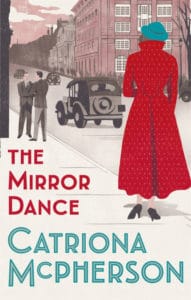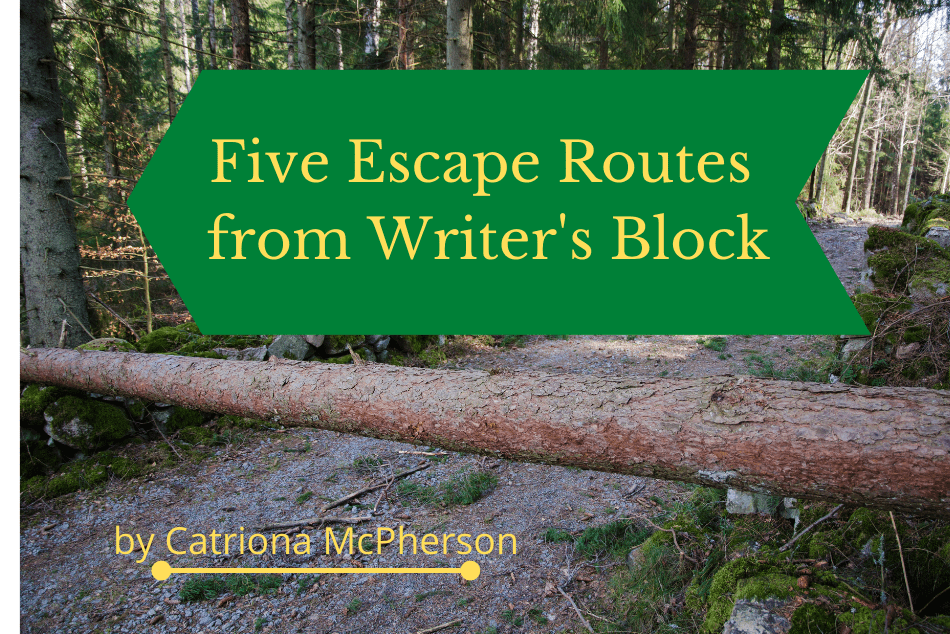I know that title promises a lot. Can I deliver? It’s hard to say. Writer’s block, like alcoholism, does lend itself to the “no true Scotsman” fallacy: if you can fix it without too much pain, then it wasn’t “true” writer’s block.
I’m taking writer’s block to mean a period of misery when you want to write, you know you should be writing, perhaps you’ve got to write – either because you’ve spent the advance, or a deadline is hurtling towards you, or you’ve told everyone you’re writing something and it will be mortifying to have to tell them otherwise – and yet you are not writing.
It can strike plotters and pantsers alike. When you’re getting the thing inside you to the outside of you for the first time, whether that thing is a draft or an outline, it can all suddenly get stuck. I’ve never heard of anyone with page-proofs block. Or even copy-edits block. No, it’s always when the baby is half-born. And it’s as uncomfortable as that sounds.
Before we get to my five tips, I’m assuming you’ve flipped all the relevant switches to helpful settings. For me, that’s:
• You’ve switched off the internet and put your phone in another room. I mean, seriously, unless you are a health care provider or a first responder, the rest of the world can struggle on without you for a bit.
• You’ve switched off your business brain. You’re not writing a break-out book right now; you’re writing a story. Later is for later.
• You’ve switched off potential outside interference by promising yourself you won’t show this to anyone. I know, I know – some writers are in critique groups and go on retreats and have inquisitive families. But if I’m blocked I don’t want Sartre’s other people all up in it too. The midwife doesn’t wash a baby’s hands before its feet are born. Your nearest and dearest don’t help at a breech delivery by saying, “Ooh look, it’s got Uncle Norris’s heels!” Later is for later.
• You’ve switched off the even peskier interfering editor who shares your skin by giving yourself permission to write something terrible and fix it after. (This is so liberating. If you’re wrong and it’s okay – great. If you’re right and it stinks – you find out how it feels to write something stinky. Spoiler: it doesn’t kill you.)
So you’ve done all that but still you’re still not writing. If it’s really bad, you’re not writing or sleeping very well or enjoying your food or laughing much.
What can you do?
Agree that writer’s block is forever and decide you will never write again
Pay back the advance, alert your editor, face your family. Or rather, run that scenario in your head and notice that it is not actually a relief. Ha! Busted! You want to write.
So try this:
Be very generous with yourself
Give yourself small, medium and large treats – real treats that you really want – for any writing you do get done. My treats might be:
• 100 words = a jaunt outside to fill the hummingbird feeder.
• 500 words = a cup of tea
• 1K words = an episode of Escape to The Country on Britbox.
• 2K words = a trip to a bookshop to buy a book. (If you buy five you have to rationalize four some other way. You’re a writer. You’ll come up with something.)
If that doesn’t clear the blockage:
Read some great fiction that’s nothing like yours
Read The Count of Monte Cristo, or Don Quixote, or Pride and Prejudice. It has to be something so distant from what you (currently don’t) write that you have to approach it as a non-writer. You become free to wallow in genius. When you’ve done that, read some bad fiction that’s right in the same sub-genre you (currently don’t) write. This will be so annoying that you might start again out of sheer umbrage.
If you’re so on the outs with fiction that you can’t read it either:
Go to see a spectacle
A film, play, concert or sporting fixture. The telly doesn’t work here. It has to be so big you can’t look away from it and go back to worrying about your story. A multiplex is ideal. Broadway or the West End even more so. Pink concerts should be tax-deductible for writers. Baseball games, in this plan, become a legitimate part of your process.
Still stuck?
Finally, my best advice of all
I’ve done this and it works. Use that imagination of yours to pretend that you’re in a documentary about a successful writer. The director needs footage of you typing. Imagine that you are in your study with a film crew and you need to hit the keys, for authenticity. You can pretend that you’ll discard what you wrote. But don’t. Some of the prose I fake wrote for the non-existent director of an imaginary documentary was absolutely fine.
How do you handle writer’s block? Let’s talk about it on the Career Authors Facebook page.

 National-bestselling and multi-award-winning author Catriona McPherson was born in Scotland and lived there until immigrating to the US in 2010.
National-bestselling and multi-award-winning author Catriona McPherson was born in Scotland and lived there until immigrating to the US in 2010.
She writes historical detective stories set in the old country in the 1930s, featuring gently-born lady sleuth, Dandy Gilver. THE MIRROR DANCE is number fifteen. After eight years in the new country, she kicked off the comic Last Ditch Motel series, which takes a wry but affectionate look at California life from the POV of a displaced Scot (where do we get our ideas, eh?). Book 4, SCOT MIST, is coming in January. She also writes a strand of contemporary psychological thrillers.
Catriona is a member of MWA, CWA, Society of Authors, and a proud lifetime member and former national president of Sisters in Crime.





